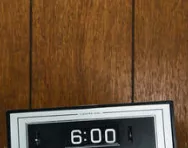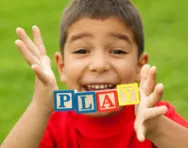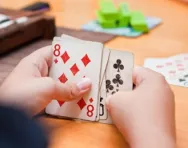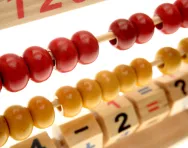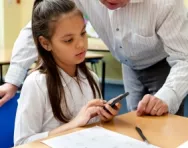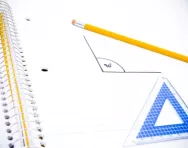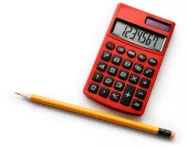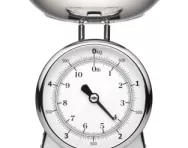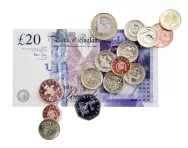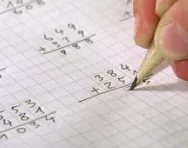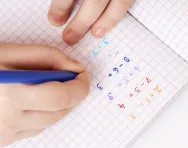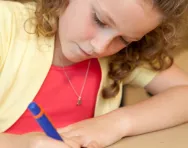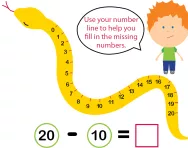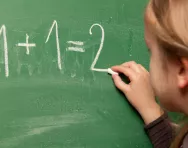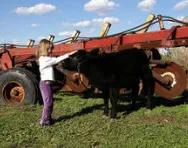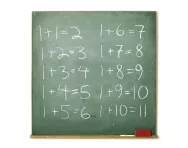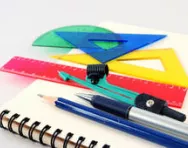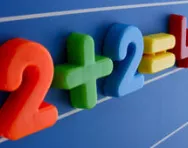Ks2 Maths articles
Telling the time: how to help your child learn
Learning to tell the time is not an easy process, so to help you help your child we have broken it down into separate learning stages.
3 steps to success in reading, writing and arithmetic
The 3Rs may not conjure up happy memories for you, but bestselling author and educational expert, Bernadette Tynan, explains how you can make sure they do for your child.
Everyday ways to make maths fun
Want to instil a love and appreciation of maths in your primary school child? You can with our practical suggestions to help make numbers fun.
A maths homework help guide for KS1 and KS2
Maths is not always a popular subject with children. But with these handy tips and downloadable worksheets, it can become a lot more fun.
Top times tables games
Help your children enjoy learning their times tables with a few easy games. Education writer Phoebe Doyle suggests five ideas for you to try.
What your child learns in KS2 maths curriculum
Think maths involves just adding, subtracting and times tables? Think again. Here’s a rundown of all the things your child will be learning in Years 3 to 6.
Year 3 maths: what your child learns
Want to know what your child will be learning in maths lessons this year? Read on to discover the Year 3 maths curriculum.
Year 4 maths: what your child learns
Want to know what subjects will be the focus in maths lessons in Year 4? Find a detailed breakdown here.
Year 5 maths: what your child learns
From probability to polygons, find out what your child will learn about in maths in Year 5.
Year 6 maths: what your child learns
Your child might be becoming quite the whiz with numbers by now. Find out how their maths knowledge will be developed in year 6.
How to help with maths homework: a non-expert's guide
Maths is one subject that fills many parents with dread - but is it really so hard? We talk to author and deputy head teacher Matt Revill to find out how parents can help their children's maths learning.
Learning numeracy at home
All around us are a wealth of mathematical problems just waiting to be solved. Here’s how to help your child extend their numeracy skills at home.
What is partitioning?
Not sure what your child means when they talk about partitioning numbers in maths problems? We explain the method, and how your child will use it.
How to use a SATs past paper: KS2 maths
Help your child get to grips with their KS2 maths SATs test format by completing past papers at home. Our parent's guide offers guidance on how to administer the test, from the equipment your child needs to what examiners are looking for to award top marks.
What is a number line?
Spotted something about a number line in your child’s homework instructions, and not sure what it means? We review the basics of this amazing, adaptable educational tool and explain how it's used in KS1 and KS2 maths.
Easy ways to engage your child with maths
Do the words “I need help with my maths homework” strike fear into your heart? Our tried-and-tested tips from maths experts will help change your child’s attitude to numbers – and yours
Maths for parents
You want to help your children with their maths learning, but what if it’s just as much of a struggle for you? Read on for top tips to help.
Learning English and maths outdoors
The great outdoors is a place where learning can take diverse shapes and forms. We take a look at how you can use it to strengthen your child’s literacy and numeracy skills.
9 ways to teach your children the value of money
Every child can benefit from learning some valuable lessons about finance. We suggest simple strategies to help your primary-school child understand money, whatever their age.
Three tips to help your child with maths
Giving your child too much help with their maths work can be detrimental to their learning, but it’s still good to show your support. Read on for top tips and techniques to get your child learning maths independently.
SATs advice: measuring and estimating
The ability to measure and estimate are important skills in both numeracy and science learning across the Key Stages. Measuring weight, height, volume and thickness and a growing awareness of quantity will help your child's ability to estimate amounts and enable them to make comparisons between objects. Here’s how to develop your child’s skills outside the classroom to increase their confidence and help them get ahead in their SATs learning.
SATs advice: maths problem-solving
Many of the questions in maths SATs papers for KS1 and KS2 involve problem-solving. Help develop your child's mathematical problem-solving skills at home with our guide to what they need to know in Y2 and Y6 and some practical activities you can try at home.
